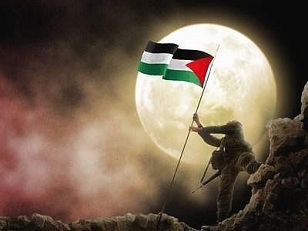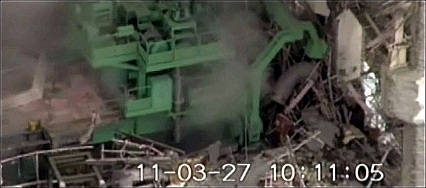Andrei Serenko
New Eastern Outlook
 University students during a demonstration in Kabul, Afghani-
University students during a demonstration in Kabul, Afghani-
stan today. Hundreds of Afghans shouted anti-US, NATO and
Afghan government slogans and burned a effigy of President
Barack Obama during a rally to protest a rumor that U.S. forces
had bombed a mosque and burned a copy of the Muslim holy
book, the Quran, in nearby Wardak province in mid-October.
Authorities say Taliban supporters spread the false report to
stir trouble. (The Associated Press)
The events of April 1-2, 2011 in Afghanistan suggest that new trends are emerging in Afghan society. We believe they will grew stronger in the near future and influence the formation of a new Afghan political reality. New active protest movements are making themselves heard, and official Kabul has so far been unable to react to them constructively and confidently.
It seems that the “new protest” phenomenon in Afghanistan is the result of several factors—the long-standing military-political conflict, Afghan society’s weariness with it and the fierce competition by world and regional states interested in increasing their impact on Afghanistan—and that includes the reformatted American presence there.
The two faces of the new Afghan protest
Two different kinds of active protests movement have shown up in Afghanistan over the past few days.
1. The Quran Defenders Movement. The spark that ignited this movement occurred when the evangelic pastors Sapp and Jones burned a copy of the Quran in Florida on March 20, 2011. News about the stunt brought thousands of the Afghan Muslims onto the streets in seven provinces—Balkh, Takhar, Jowzjan, Kabul, Kandahar, Bamyan, Herat and Jalalabad. Violent demonstrations by members of the Quran Defenders Movement in Balkh and Kandahar shook the world. From 3000 to 8000 people participated in demonstrations involving the use of firearms in Mazar-e-Sharif and Kandahar on April 1-2. At least 20 people were killed, including seven foreigners, and 100 people were wounded. The Quran Defenders Movement shouted tough anti-American slogans (it should be noted, however, that not one US citizen was injured during the protests). The Center for the Study of Modern Afghanistan (TsISA) reports that according to sources in the country radical Islamic clerics played a prominent role in organizing the armed protests in Mazar-e-Sharif and Kandahar (the violent crowd in Mazar-e-Sharif responded to calls by several mullahs who had led the Blue Mosque congregation during the period of Taliban rule).
2. The “Supreme Reformers Council.” This movement, which emerged in Internet social networks, has already called for an active (massive, street) protest. However, in contrast to the Quran Defenders Movement, which is directed and organized by Islamic clerics, the Supreme Reformers Council is primarily focused on secular and civil values. It organizes the activities of its followers using Internet technologies (Facebook), and its goal is the implementation of anticorruption reforms in Afghanistan. This movement represents the interests of educated young people in Afghan cities. The Supreme Reformers Movement held its first press conference in Kabul in late March (which, incidentally, was ignored by most Afghan and foreign media). Dozens of the new movement’s followers gathered on a street in the Deh Mazang area for the press conference, during which members of the movement announced their main demand—a stepped-up fight against corruption. Participants demanded that President Hamid Karzai fire government ministers accused of corruption.




























